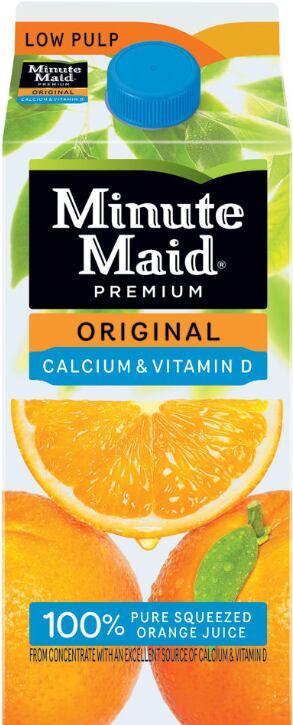The breaches relate to The Coca-Cola Company’s Minute Maid juice processing site at 38279 West Red Arrow Highway, Paw Paw. A letter sent to Coke on March 12 2013, and shared by the EPA with BeverageDaily.com, lays out 27 alleged violations of the US Clean Air Act’s Risk Management Program (RMP) relating to ammonia.
These include (1) lack of managerial system to oversee implementation of RMP elements (2) failure to determine ‘worst case’ release quantities in single vessels (3) lack of information relating to safe upper and lower temperatures, pressures, flows and compositions.
(4) Lack of information regarding the technology of the relief system design (5) Lack of information relating to safety systems (6) failure to perform a process hazard analysis.
More damningly, if true, the EPA alleges that Coke failed to begin incident investigation within 48 hours following an accident, establish a knowledgeable incident investigation team or include the date when any investigation began in incident reports.
Toxic ammonia can cause death
Ammonia is toxic and may be harmful to humans if inhaled in concentrations. According to the EPA, effects can range from irritation to severe respiratory injuries and even death, while skin exposure results in a chemical-type burn.
A paragraph in Coke’s 2013 annual report (filed on February 27 2014) explains that the Michigan juice plant uses ammonia in its refrigeration equipment, with this use subject to the RMP.
“Under the RMP our plant must develop, maintain and implement a plan to prevent, mitigate and respond to potential releases of ammonia into the environment,” Coke says.

But an inspection by the EPA to ensure compliance resulted in the agency sending Coke a notice on March 12 2013 – the document we mention above – listing the alleged violations and indicating that it could take administrative enforcement action proposing civil penalties of $278,000.
“The company is in the process of negotiating a reasonable settlement regarding the matter and believes that any penalties imposed will not be material to its business, financial condition or results of operations,” Coke said
‘We’re still working on a settlement’ – Coke
The EPA stresses that its letter is not a demand for payment, and the agency invited Coke to provide evidence that, inter alia, it did not break the law, that it relied on compliance assistance from the EPA or another State agency.
Felicia Turrentine Wasson, director of public affairs and communications for The Coca-Cola Company, North America Group is based in Michigan, but refused to expand on Coke’s annual report comments.
“The company is working with the EPA on a settlement that is satisfactory to both organizations,” she said.
Erin Brokovich-backed groundwater contamination case
Turrentine Wasson also declined to clarify whether the company settled another environmental issue relating to Paw Paw site – a high-profile case relating to alleged groundwater contamination that made national news back in 2010 when a class action was launched.
In April 2010, 80 local residents sued Coke seeking damages for damage to property after the alleged contamination that they blamed on the Minute Maid plant; they even won support from celebrity environmental campaigner Erin Brockovich.
The residents said in their filing that chemical nutrients and cleaning agents in wastewater sprayed on nearby fields for 30+ years had stripped the soil of oxygen and contaminated groundwater with heavy metals that exceeded Michigan state standards.
William Stapleton, an attorney at Michigan law firm Hooper Hathaway, who represented the plaintiffs in this case, told BeverageDaily.com today through a secretary that it was settled (in 2012, prior to trial, as court documents also reveal) but that the details were “completely confidential”.
*Join us for our free online event, Beverage & Dairy Treatment 2014, on March 20 2014. The program starts at 10.15am New York time, 3.15pm in Paris, and explores process technologies including aseptic, ESL and HPP.
Exclusive webinars unite top consultants, suppliers such as GEA Procomac and Avure and brandowners including Coca-Cola Hellenic and Refresco Gerber. Click here to find out more and to register .
